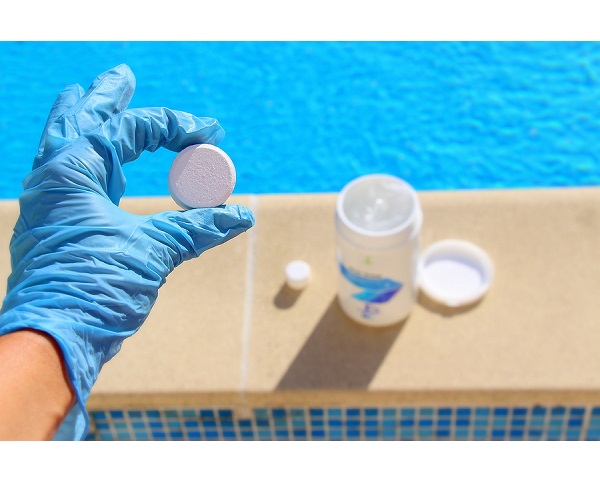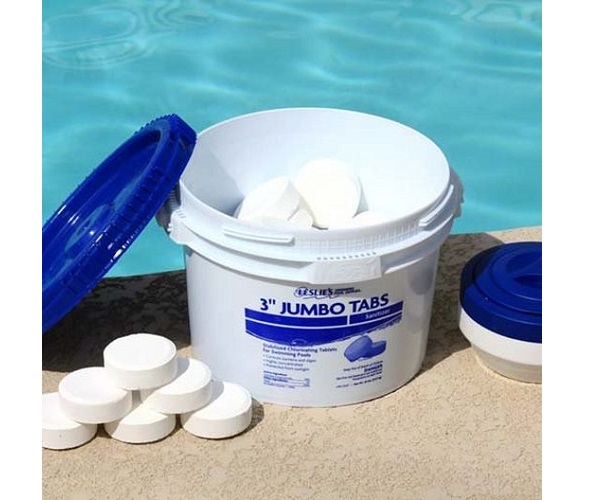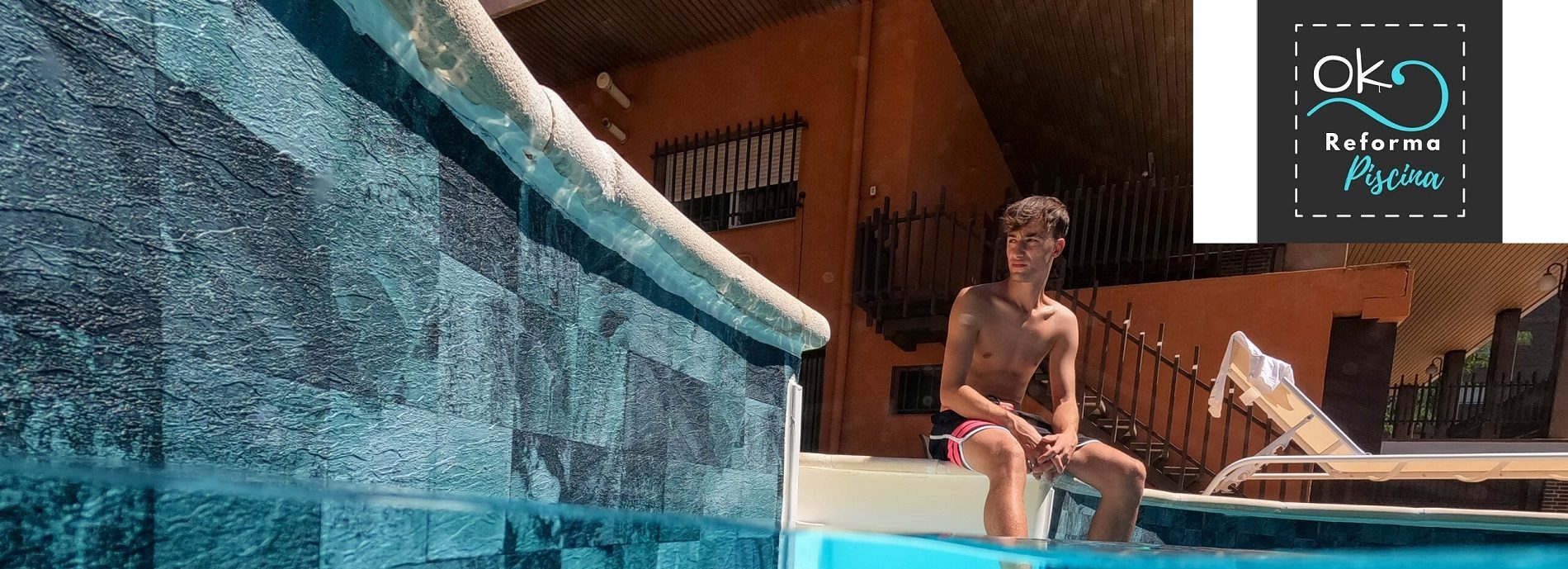
Table of contents of the page
En Ok Pool Reform within Chemical products and specifically in the section on pool chlorine We will try to answer: How long does it take for chlorine to evaporate from pool water?
What is chlorine and what is it used for in swimming pools?
Chlorine is a chemical used to disinfect pool water and keep it clean.
Chlorine is a chemical compound that is used as a disinfectant and is present in many cleaning products. It is a very effective compound for eliminating bacteria and viruses, making it ideal for treating swimming pool water. Chlorine is used in swimming pools to keep the water clean and free of bacteria. It is applied directly to pool water, and once it evaporates, it leaves an invisible layer of chlorine in the water that kills bacteria.

Chlorine is a naturally occurring chemical element and one of the basic components of matter.
How is chlorine in the pool produced?
- Chlorine is produced from common salt by passing an electrical current through a brine solution (common salt dissolved in water) in a process called electrolysis.
Why should we add chlorine to swimming pools?
Chlorine is added to water to kill germs, and this forms a weak acid called hypochlorous acid that kills bacteria (such as salmonella and as well as germs that cause viruses such as diarrhea and swimmer's ear).
Although, chlorine is not the only possibility in the pool water treatment (click and discover the alternatives to chlorine!).
Why is it important to maintain the proper level of chlorine in the pool?

What is the level of the different values of chlorine in swimming pools?

Pool chlorine level: how much chlorine does a pool need?
If there is not enough chlorine in the pool, bacteria can grow and make you sick.
Maintaining the proper level of chlorine in the pool is important because chlorine is a disinfectant and helps kill germs. It also helps keep the water clean and clear. If the chlorine level is too low, the water can be dirty and bacteria can grow.
1. If there is not enough chlorine in the pool, powder or liquid chlorine can be added to the water. 2. A chemical called "shock" can also be added to help increase the chlorine level. 3. If the pool water is very dirty, you may need to drain it and start over.
However, if there is too much chlorine in the water, it can cause irritation or damage to the skin and eyes of bathers.
If the chlorine level is too high, the water can be irritating and burns can occur.
That's why it's important for pool users to check the chlorine level in their pool regularly and make sure it stays within safe limits.
How long does it take for chlorine to evaporate from pool water?

How long does it take for chlorine to evaporate from pool water?
chlorine evaporation
The time it takes for excess chlorine to evaporate from pool water depends on several factors, including the temperature of the water, the amount of sunlight the pool receives, and the amount of chlorine used in the pool.
It typically takes 6-12 hours for chlorine to completely evaporate from a pool. If left unchecked, too much chlorine can make bathers sick or possibly cause long-term damage to the eyes or skin.
To avoid this problem, it is important that pool users regularly measure and check the chlorine level in the water, as well as ensure that they follow any other pool maintenance practices recommended by their local health department. By taking these steps, you can help ensure that your swimming experience is safe and enjoyable.


